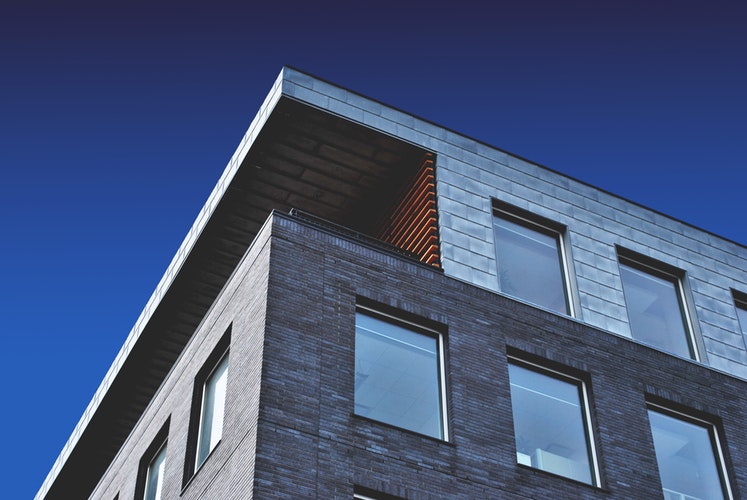Effective Strategies for Commercial Property Repairs: Ensuring Long-Term Value
Effective Strategies for Commercial Property Repairs: Ensuring Long-Term Value
Commercial property repairs are a critical aspect of ensuring that your property maintains its value and continues to attract tenants. Over time, wear and tear can take a toll on any building, and it’s your responsibility as a property owner to ensure that the necessary repairs are made on a regular basis. In this article, we’ll discuss some effective strategies for commercial property repairs that will help you reduce liability, attract tenants, and ensure your property retains long-term value.
Understanding the Importance of Commercial Property Repairs
Maintaining your property is crucial to its long-term value. Without regular repairs and maintenance, your property could suffer from long-term wear and tear. This could result in expensive repair costs, as well as lost rental income from tenants who don’t want to stay in a building that’s not well-maintained.
Maintaining Property Value
Regular property repairs are essential in maintaining the value of your property. As a property owner, you have to ensure that your building is in excellent condition. Regular repairs help manage long-term wear and tear, which can help maintain the overall value of your property. A well-maintained property attracts potential buyers and investors, which can result in higher profits and returns on investment.
Moreover, regular repairs are a smart investment as they help extend the life of your property. It reduces the overall cost of owning and maintaining it. By investing in repairs, you can save money in the long run and avoid expensive repair costs that may arise from neglecting your property.
Attracting and Retaining Tenants
Tenants expect clean, safe, and well-maintained buildings. Regular commercial property repairs help to keep your building looking good, which makes it more appealing to potential tenants. Property owners who take care of their buildings will attract high-quality tenants who are willing to pay higher rates for well-maintained properties. If they’re happy with the state of the property, they are more likely to resign their lease agreement year after year.
Furthermore, maintaining your property can also help you attract new tenants. When potential tenants see that your property is well-maintained, they are more likely to choose your building over others. This can result in a lower vacancy rate and higher rental income.
Reducing Liability and Risk
By keeping your building in good condition, you can reduce the risk of accidents or injuries occurring on the premises. Regular inspection and maintenance programs can catch potential hazards early, leading to effective repair work before anyone is injured. By addressing issues proactively, you can also reduce the risk of potential lawsuits and costly insurance claims.
Moreover, a well-maintained property can also help you comply with health and safety regulations. Failure to comply with these regulations can result in penalties and fines, which can be costly for property owners.
In conclusion, regular commercial property repairs are essential in maintaining the value of your property, attracting and retaining tenants, and reducing liability and risk. As a property owner, you have to ensure that your building is in excellent condition to avoid costly repair costs and lost rental income.
Regular Inspection and Maintenance
Regular inspections are an essential part of managing your commercial property’s repairs. They enable you to identify potential problems early, so you can take action before small issues become more significant and expensive. In addition to this, regular inspections can also help you to keep your building in the best condition possible, ensuring that it remains an attractive and comfortable space for your tenants and visitors.
Scheduling Routine Inspections
Scheduling regular inspections is critical to identifying potential issues before they become significant problems. You should aim to carry out inspections at least once per quarter and more often if your building experiences high traffic. During these inspections, make sure to check the condition of your building’s roof, plumbing and electrical systems, HVAC equipment, and exterior features, such as windows and doors.
It’s also important to keep a record of your inspections, noting down any issues that you identify and the actions that you take to address them. This can help you to identify any recurring problems and to develop more effective strategies for preventing them in the future.
Identifying Common Repair Issues
Common commercial repair issues include problems with the building’s electrical system, plumbing, and HVAC equipment. It’s essential to identify these problems early so that they can be repaired safely to avoid a catastrophic event. Regularly monitoring these systems, creating a checklist or using a cloud-based monitoring platform can help you track the performance of your commercial property’s various systems.
In addition to these common issues, there may also be specific challenges associated with your particular building or location. For example, if your building is located in an area with a high risk of flooding, you may need to take additional measures to protect your property against water damage. Similarly, if your building is situated in an area with harsh weather conditions, you may need to invest in more durable materials and equipment to ensure that your building remains safe and secure.
Implementing a Preventative Maintenance Plan
Implementing a preventative maintenance plan can help keep things running smoothly by tackling potential issues head-on. Creating a plan ahead of time to address common commercial repairs can prevent costly emergencies and potential damage to your building. A preventative maintenance plan could include regular cleaning routines, replacing filters, and updating equipment.
It’s also important to involve your tenants in your preventative maintenance plan, encouraging them to report any issues or concerns as soon as they arise. This can help you to identify problems early and to take swift action to address them, before they have a chance to escalate into more serious issues.
Ultimately, by investing in regular inspections and preventative maintenance, you can help to ensure that your commercial property remains in the best possible condition, providing a safe and comfortable space for your tenants and visitors alike.
Prioritising Repairs and Renovations
Despite implementing a preventative maintenance plan, there will come a time when repairs and renovations must be done. This could be to maintain a safe and healthy environment for tenants, address concerns that have been raised, or to upgrade the property to keep up with the latest technologies and materials. In this section, we will discuss ways to prioritise repairs and renovations to ensure that your property remains in excellent condition.
Assessing the Urgency of Repairs
When it comes to repairs, it’s essential to assess the urgency of the situation. Some repairs need to be done immediately to maintain the safety and well-being of your tenants. Examples of such repairs include water leaks, broken locks, and electrical faults. Keep a list of urgent repairs that need to be made and prioritise them over less pressing repairs. Urgent repairs require immediate attention as they could lead to additional damages, safety risks, and loss of tenancy.
However, it’s not just urgent repairs that need to be considered. It’s also important to address repairs that may not be urgent but could lead to more significant problems down the line. For example, a small water leak may not seem like a big deal, but if left unattended, it could lead to mold growth and structural damage. By addressing these types of repairs promptly, you can save yourself time and money in the long run.
Budgeting for Property Improvements
Property improvements are necessary from time to time to keep up with the latest technologies and materials. While it’s important not to overspend, it’s also crucial to budget for property improvements. Creating a budget will help you prioritize what needs to be done and how much you can allocate towards property improvements. Keep track of the costs of repairs and improvements over time to develop an informed outlook on future spending.
When budgeting for property improvements, it’s essential to consider the return on investment (ROI). Upgrades that improve the property’s long-term value, such as a new roof or updated electrical system, may be worth the investment. However, it’s important to balance these upgrades against the needs of your tenants.
Balancing Tenant Needs and Property Upgrades
Assessing tenant needs and balancing them against property upgrades can be challenging. Focusing on tenant needs, particularly those that affect their health and safety, is essential. Keeping an open line of communication between tenants and management can help identify areas that require urgent attention.
However, it’s also important to consider the long-term benefits of property upgrades. Upgrades that improve energy efficiency, such as new windows or insulation, can save you money on utilities in the long run. Additionally, upgrades that improve the property’s curb appeal, such as new landscaping or a fresh coat of paint, can attract new tenants and increase the property’s value.
Ultimately, finding the right balance between tenant needs and property upgrades requires careful consideration and planning. By prioritizing urgent repairs, budgeting for property improvements, and balancing tenant needs with long-term upgrades, you can ensure that your property remains in excellent condition and continues to provide a safe and comfortable home for your tenants.
Hiring Qualified Professionals
Hiring qualified professionals is crucial when it comes to ensuring the safe and efficient completion of commercial property repairs. The right contractors can make all the difference in the success of your project.
When searching for contractors, it’s important to take into consideration their credentials and experience. You want to ensure that they have the necessary skills and expertise to handle the job at hand. A good place to start is by checking if they have a valid license and insurance coverage. This can give you peace of mind knowing that they are qualified to work on your property.
It’s also important to look for contractors who are members of relevant trade organizations. These organizations often have strict guidelines and standards that members must adhere to, ensuring that you are getting a reputable and reliable contractor.
When interviewing contractors, be sure to ask questions about their experiences in handling commercial repair work. It’s important to know what materials and equipment they use and the time it takes to complete the job. This includes downtime required for tenant occupants, as you want to minimize disruptions to their daily operations.
Ensuring Proper Licensing and Insurance
Proper licensing and insurance are crucial when it comes to commercial property repairs. Repair contractors must have valid proof of insurance and bonding, and it’s essential to confirm coverage and licensing directly with the contractor. Insurance coverage can vary significantly and may not always be valid if it does not meet local requirements.
By ensuring that your contractor has the proper licensing and insurance, you can protect yourself and your property from potential liability issues.
Establishing Clear Communication and Expectations
Clear communication is key when it comes to working with contractors. From the beginning of the project, it’s important to establish clear communication and expectations. This includes setting project expectations, deadlines, and agreeing on the best way to communicate progress.
Establishing a meeting schedule or progress update requirements can help ensure timely completion of the job. This also allows you to stay informed throughout the entire process and address any concerns or issues as they arise.
By following these tips, you can ensure that you are hiring qualified professionals who will get the job done right. Don’t settle for anything less than the best when it comes to your commercial property repairs.
Implementing Energy-Efficient Solutions
Implementing energy-efficient solutions can help to reduce your property’s utility costs and carbon footprint. Not only does this help the environment, but it can also help you attract environmentally conscious tenants, lower your operating costs and increase the property’s value.
Upgrading HVAC Systems
Upgrading your commercial property’s HVAC systems can improve the air quality, reduce energy costs and reduce maintenance issues. Consider upgrading to energy-efficient heating or cooling systems to save energy and lower costs in the long run.
Installing Energy-Efficient Lighting
Implementing energy-efficient lighting can significantly reduce your property’s energy costs. Replacing traditional light bulbs with more energy-efficient options such as LED lights may cost more to install initially, but they have a longer lifespan and will save energy over time.
Implementing Water-Saving Measures
Reducing water consumption is also essential when looking to implement energy-efficient solutions. Simple ways to achieve this can include installing low-flush toilets, reducing water pressure, and fixing leaks quickly to prevent additional water loss.
Enhancing Curb Appeal and Tenant Satisfaction
Curb appeal is essential in attracting tenants and retaining them over time. This section discusses some strategies for enhancing curb appeal and boosting tenant satisfaction with the premises.
Landscaping and Exterior Improvements
Investing in landscaping and exterior improvements can help enhance the appearance of your commercial property and make it more appealing to tenants. Small improvements such as trimming the hedges, planting flowers or adding a new coat of paint may seem insignificant, but they can do wonders for curb appeal and tenant satisfaction.
Updating Common Areas and Amenities
Keeping common areas and amenities up-to-date is essential to keeping tenants satisfied with their leasing agreements. This can include upgrading appliances, installing new carpet or other flooring, or painting walls. Ensuring all your tenants can access common areas that cater to their needs adequately can result in long-term, happy tenancy.
Addressing Tenant Feedback and Concerns
Staying in touch with your tenants and addressing their feedback and concerns in a swift and professional manner can go a long way to enhancing tenant satisfaction with the property. Addressing any concerns swiftly can help build trust with Occupants and creates a positive tenancy vibe.
Monitoring and Evaluating Repair Strategies
Monitoring and evaluating your commercial property’s repair plans will help you determine the usefulness of the plan and how effective it is in achieving its intended results. In this section, we’ll explore how you can monitor and evaluate the repair strategy you put in place, track the repair costs and return on investment (ROI) of the property.
Tracking Repair Costs and ROI
Tracking repair costs over time is a great way to refine your repair strategy so as you improve your property over the years. Monitoring your improvement records can help maintain healthy property growth and long-term profit, offering an idea of your ROI. Evaluating the return on investment of each improvement can determine how successful it was in generating revenue or increasing overall property value.
Adapting to Changing Market Conditions
Like any industry, the commercial property sector is susceptible to market fluctuations and changes. It’s essential to continue monitoring your commercial property’s repair strategies and adapting them to keep up with changing market conditions. Identify which repairs are working, which aren’t, and change those repair strategies and repair budgets based on financial conditions and market trends.
Continuously Improving Property Management Practices
Continuous improvement of property management practices is essential to ensure your commercial property reaches its full potential. By keeping up to date with the latest industry developments, compliance standards and constantly revaluating repair strategies, property owners can maintain a high-quality asset that will be attractive to tenants and investors in the long term.
Overall, implementing these effective strategies for commercial property repairs will help you maintain the safety of your tenants, reduce costs, and improve the value of your property. However, keeping up with necessary repairs and continually upgrading your property can be time-consuming, so, if you need help, consider working with a property management professional who can help you develop a robust plan and implement it successfully for the benefit of your tenants.





